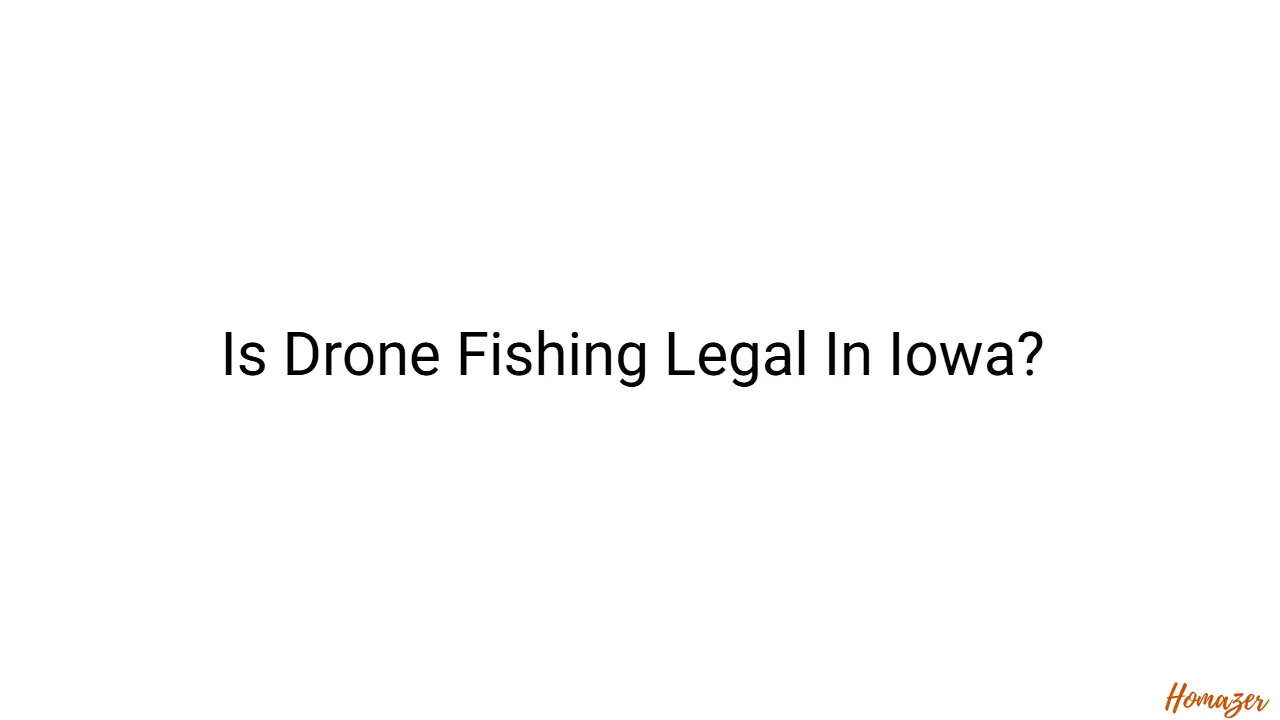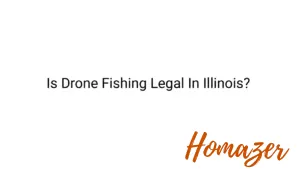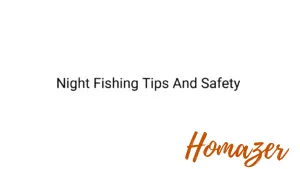Imagine this: you’re at your favorite fishing spot, the sun is setting, and you’re ready to reel in a big one. But instead of casting a line, you’re controlling a tiny aircraft that’s helping you get the perfect catch. Sounds futuristic, right? Well, that’s the basics of drone fishing. But before you start dreaming of robotic anglers, there’s a serious question to answer: Is drone fishing legal in Iowa? This guide will explore the rules, regulations, and possibilities. By exploring this topic, you’ll gain a clear picture of what’s allowed and what’s not, allowing you to avoid costly mistakes. This information will help boost your Time on Page and reduce your Bounce Rate by keeping you informed and interested in the topic.
Drone Use and Iowa’s Waters
Iowa, with its beautiful lakes, rivers, and streams, offers plenty of opportunities for anglers. However, the use of drones in this context is subject to specific rules. This is because drone technology is rapidly evolving, and regulators are trying to keep up. Before even thinking about sending a drone near the water, it is important to know the current guidelines. Doing so will help keep you on the right side of the law. This section will look at the basic framework that governs drone activity in Iowa and how it applies to fishing.
Federal Aviation Administration (FAA) Regulations
At the national level, the FAA sets the primary rules for drone operation. These federal rules apply to all drone users, no matter what they plan to do with their aircraft. They cover everything from where you can fly to how you should register your drone. The FAA regulations aim to ensure the safety of airspace. Knowing and following these rules is the first step in determining if Is drone fishing legal in Iowa?
- Registration: All drones weighing more than 0.55 pounds (250 grams) must be registered with the FAA. This provides a way to identify the drone and its owner if something goes wrong. This process is fairly straightforward and can be done online.
- Operational Restrictions: Drones are generally restricted from flying near airports, in controlled airspace, and above people. The FAA also limits flight altitudes to 400 feet above ground level. These restrictions are in place to prevent accidents.
- Remote Pilot Certificate (Part 107): For commercial operations, a Remote Pilot Certificate is required. This certification involves passing an exam and meeting other requirements set by the FAA. Recreational flyers do not need this certificate.
If your drone is in this weight class, you have to register it. It is as simple as visiting the FAA website and entering your details. This also applies to any type of flying, even if it is recreational or for fun.
The FAA wants to ensure that all drone pilots are aware of the safety implications. Do not fly near airports. This is especially important, since even the smallest drones can interfere with aircraft. Always check the airspace before flying.
If you’re using your drone to make money – perhaps you’re planning on catching and selling fish with it – then you’ll need the Part 107 certificate. This shows you have the necessary know-how to fly safely. If you only fly for fun, then this does not apply.
Iowa Department of Natural Resources (DNR) Rules
Beyond federal guidelines, the Iowa DNR may have its own regulations regarding drone usage within state parks, wildlife areas, and over waterways. These local rules often have more specific details. They often address the impact on wildlife and recreational users. These rules help to manage resources and preserve the natural environment. Understanding them is key when determining if Is drone fishing legal in Iowa?
- Specific Locations: Some parks or wildlife areas might completely ban drone use. Others may allow it but with specific time restrictions or limitations. Always check the local rules of the area where you plan to fly.
- Impact on Wildlife: The DNR may restrict drone use to protect nesting birds or other sensitive wildlife. The noise and presence of a drone can stress animals. This can be detrimental to their survival.
- Fishing Regulations: Although the rules surrounding the direct use of drones for fishing are still emerging, the DNR may have rules related to the methods of fishing that are permitted. This could affect the legality of using a drone to deploy lines or baits.
Before you fly, check the rules of the specific park or area. Many places may allow drones in some areas. It is up to you to know what is permitted and what is not. This will save you any potential hassle with the authorities.
Drones can cause a lot of stress for birds and other animals. If your drone causes distress to wildlife, it is important to stop your operations. Always be aware of your surroundings, and respect the environment.
Regulations on fishing methods may change, so always check the latest rules. Stay up-to-date with any DNR updates. Ensure your fishing practices align with the state’s guidelines.
The Legality of Drone Fishing in Iowa
The question of whether drone fishing is legal in Iowa is complex. It involves interpreting both federal and state regulations. The legal landscape is constantly changing as technology evolves. There may be specific interpretations or rulings that address this novel use of drones. This section provides an overview of what is currently allowed and what is likely restricted when considering Is drone fishing legal in Iowa?
Current Status and Interpretations
Currently, there is no specific law in Iowa that explicitly prohibits or permits drone fishing. This lack of specific legislation means that the general rules apply. Regulations are often more concerned with the manner in which the drone is used and the impact on the environment and public safety. Because of the lack of a law on drone fishing, it is especially important to exercise caution.
- Line Deployment: Deploying fishing lines or bait using a drone might be considered illegal. It is possible this breaks existing regulations on fishing methods. Some states may prohibit using mechanical devices to assist in fishing.
- Monitoring and Surveillance: Using a drone to monitor fish or locate fishing spots is generally allowed. The use of the drone to scout for fish does not necessarily violate existing rules. It is likely not to be considered illegal as long as it does not directly interfere with fishing.
- Interference with Other Anglers: Drone use that interferes with the enjoyment of others or poses a safety risk might be prohibited. Drone operators must be aware of their surroundings. They also need to make sure they are not disrupting others.
The use of drones to deploy fishing lines is a gray area. There are concerns around whether it gives you an unfair advantage or violates existing fishing laws. You will need to review the specific fishing regulations for the area.
Using a drone to find fishing spots is generally permitted as long as it does not directly assist in the act of catching fish. Drones with cameras can be used for scouting the area, but they cannot be used to drop bait or lines.
Your drone use should not disturb other anglers. Be respectful of their fishing experience. The noise of a drone might scare away fish or simply be annoying. Try to keep your drone use to areas with few people around.
Potential Legal Challenges
Even if the practice appears compliant with current rules, there are several legal hurdles that can arise. Drone fishing is still new. Regulations are catching up with technology. This might lead to unexpected legal problems. Being aware of the potential challenges can help you make an informed decision about drone fishing.
- Property Rights: Drone use over private property can cause issues. If you fly over someone’s property, you may be violating their rights. You need to obtain permission from the landowner before flying over private land.
- Wildlife Protection: Drone use can disturb wildlife, leading to legal issues. Disturbing nesting birds or other protected species might result in fines or other penalties. Drone users have a responsibility to not cause harm.
- Privacy Concerns: Drones with cameras can record footage, which could be used to violate privacy. Know the law. Understand your limitations. Ensure you’re not capturing footage in areas where privacy is expected, such as homes.
Be aware of property rights. Before flying, know where the boundaries are. If you plan to fly over private property, you need to have the owner’s permission. Doing this will prevent you from facing potential legal issues.
Be respectful of the environment and protect wildlife. Drone use can frighten animals, potentially causing damage. Always be prepared to change your flight plans to protect the animals in the area.
Respect people’s privacy and be aware of recording laws. Be mindful of the camera’s angle and areas to avoid capturing footage. Make sure you know and adhere to the guidelines on personal data protection.
Safety Guidelines and Best Practices
Even if drone fishing is legal in certain areas, there are a number of safety measures that should always be followed. Safe drone operation is key. It ensures not only compliance with regulations but also the protection of yourself, others, and the environment. These practices help avoid any accidents or issues that may arise from drone use. Following these tips is essential for a great fishing experience. This section will look at all the key safety steps you should follow when considering Is drone fishing legal in Iowa?
Pre-Flight Checklist
Before launching your drone, it is important to conduct a pre-flight inspection. This helps you to identify any possible issues. It is key to safety. A thorough check can prevent accidents. Make it a habit. This is an important step when you are thinking about drone fishing.
- Drone Inspection: Inspect the drone’s frame, propellers, and battery. Look for damage or wear. Ensure everything is in good working order. Damaged parts can make the drone unstable. They also might cause it to crash.
- Battery Check: Make sure the drone’s battery is fully charged. Have spare batteries ready. This will allow for longer flight times. It is essential, and makes sure you don’t run out of power unexpectedly.
- Weather Conditions: Check the weather forecast for wind, rain, and temperature. Avoid flying in bad weather. Strong winds or rain might damage the drone. They can also affect its performance.
Check the frame for any cracks or damage. Inspect the propellers to ensure they are firmly attached and free from damage. If you identify any problems, do not use the drone. If the drone is not working properly, it might be unsafe to fly.
Always know your battery life. Use a charging station. Bring extra batteries, so you can extend your fishing time. This will help prevent the drone from losing power. It might crash if it runs out of battery power.
Never fly your drone in harsh weather conditions. Strong wind, rain, and extreme temperatures can affect the drone. Check the weather forecast. Only fly if the weather is safe.
Operating Procedures
Proper operating procedures are key to the safety of drone fishing. This involves making smart choices and following best practices. Following these methods minimizes the risk of incidents and increases the chance of a successful outing. Safe drone operation is a skill. It should be improved with practice.
- Visual Line of Sight: Always keep the drone within your visual line of sight. This helps you to monitor the drone’s position. It also helps you avoid obstacles. You can react quickly if something happens.
- Safe Distances: Maintain a safe distance from people, buildings, and other obstacles. Make sure you have enough space to handle potential flight issues. Safe distances prevent accidents from occurring.
- Emergency Procedures: Know how to handle common issues like battery failure or signal loss. Have a plan for bringing the drone down safely. Being prepared can reduce risks and increase safety.
Do not let your drone fly beyond your line of sight. It can easily collide with objects if you cannot see it. Maintain control of your drone at all times. This will help prevent issues.
Be aware of your surroundings. Avoid flying over crowds or near buildings. Give yourself enough room to react in an emergency. If something happens, you will be prepared.
Prepare for possible scenarios such as battery issues. Know what to do if your drone loses contact with the controller. Make a plan. You must be prepared to respond. This will reduce potential risks.
Environmental Considerations
Considering the environment is a must for responsible drone fishing. This means protecting both the environment and wildlife. Drones can affect both, so it’s key to know how to minimize their impact. Being respectful of the environment helps to ensure that fishing areas remain enjoyable for everyone. It also helps maintain wildlife.
- Respect Wildlife: Avoid flying too close to birds or other animals. Be aware of nesting areas. Do not disturb their habitats. Noise and the presence of drones can be stressful for wildlife.
- Minimize Noise: Reduce the noise level, especially in sensitive areas. Reduce the noise. Choose a quieter drone, or fly at lower altitudes when possible. Minimizing noise is important to prevent disturbance.
- Proper Disposal: Dispose of batteries and any drone-related trash properly. Dispose of batteries and other parts in a safe manner. Protect the environment. Following proper disposal practices will help.
Pay attention to the animals around you. Avoid any action that might disturb their normal behavior. If you notice any signs of distress, immediately stop your operations. Prioritize their safety and well-being.
Make every effort to reduce noise. Noise pollution is a real issue. Consider using a quieter model. Be careful in wildlife areas. This helps keep the environment calm.
Make sure you handle your drone components and any waste properly. Properly dispose of batteries. Doing this helps protect the environment. Recycle your batteries. Reduce the overall effect on the natural world.
The Future of Drone Fishing in Iowa
The future of drone fishing in Iowa is uncertain, but it’s evolving. The possibilities are huge, but they are also regulated by laws and technology. The evolution of drone fishing hinges on a balance of technical advances and rule changes. Staying informed about the latest developments is important. Here’s a look at what the future may hold, when considering Is drone fishing legal in Iowa?
Technological Advances
Technology continues to change. These advances will affect how drones are used in fishing. As the technology grows, it also offers new features and options. You will get more choices. You will also experience better quality and performance.
- Improved Battery Life: Increased battery life will lead to longer flight times and wider operational ranges. This may mean longer fishing periods. It also may let users survey bigger areas.
- Enhanced Camera Technology: Better cameras will offer higher-resolution images and videos. This would allow for a deeper look at the underwater environment. This may improve fish location abilities.
- Advanced Navigation and Autonomy: Future drones might feature advanced autonomous capabilities. They might be able to independently scan water, identify fish, and even deploy lines. These features will greatly improve drone fishing.
Longer battery life lets drone users fish for a longer time. They also get a better overview of the fishing areas. Longer flight times mean less worry about losing power in the middle of a session.
Better cameras will also mean better fishing. Anglers can monitor the fish. They also see the conditions below the surface. This could significantly improve the chances of success. It could enhance the fishing experience.
Autonomous capabilities will make drone fishing more efficient. These new features will greatly improve the experience. Drones will take on more of the work. This may provide a more efficient and satisfying experience.
Potential Regulatory Changes
Changes in regulations will have a huge impact on drone fishing. As technology evolves, so does the need to adjust the law. Future policies could broaden the options. They might also make things more restricted. All of these changes have an impact on whether Is drone fishing legal in Iowa?
- Specific Drone Fishing Laws: Iowa may develop laws that specifically cover drone fishing. This might involve setting up regulations for the use of drones in fishing. The regulations might cover gear. They might also cover methods.
- Federal Preemption: Federal regulations can take precedence over state and local laws. Changes at the federal level might affect how drones are used. This would affect drone fishing.
- Public Input and Debate: As drone fishing grows, public input will influence regulations. This public discussion can influence new policies. It also allows for discussion about the pros and cons.
These new laws could spell out specific restrictions and allow certain practices. This will bring more clarity to drone fishing. Rules will be set in place that make the process clearer and safe.
Federal decisions could change what is permitted. Knowing these changes is vital. Keep up-to-date with how the federal government can affect your fishing practices.
Public conversation is key. This public discussion helps form guidelines. It ensures that the rules are fair and reflect everyone’s concerns. This participation can assist in forming good regulations.
The Impact on Angling
The expansion of drone fishing may have a huge effect on angling in Iowa. It will affect traditional fishing techniques, fishing rules, and the overall experience of people fishing. The angling community will need to adjust. Everyone will need to manage the changes. This will also have an impact on whether Is drone fishing legal in Iowa?
- Innovation in Techniques: Drone fishing could lead to new methods and equipment. Anglers may adopt these technologies to boost their catches. New gear and techniques will expand your fishing knowledge.
- Changes in Fishing Ethics: The rise of drone fishing might prompt a discussion about fishing ethics. This discussion will focus on fairness, sportsmanship, and the role of technology. These discussions will help clarify responsible use.
- Conservation Efforts: Drones might play a role in conservation efforts. They could be used to monitor wildlife. They could also contribute to the protection of habitats. Drones can help.
Anglers may embrace new ways to improve their fishing. New tools may lead to bigger catches. This could offer anglers more options, and expand the traditional ways to fish.
As technology changes, ethics will come into question. It is important to discuss what is fair, the value of sportsmanship, and the right role for tech. Maintaining a fair fishing environment is important.
Drones can contribute to conservation efforts by monitoring water. They can also help look at the wildlife. Drones can play a key role in protecting the fish species. This will help maintain healthy ecosystems.
| Aspect | Current State | Potential Future |
|---|---|---|
| Regulations | No explicit laws regarding drone fishing. General drone and fishing rules apply. | Specific drone fishing laws could be enacted. Federal guidelines may also influence state policy. |
| Technology | Limited by current drone capabilities, camera resolution, and battery life. | Improved battery life, enhanced camera tech, autonomous functions, and better navigation. |
| Impact on Angling | Minor, mainly limited to scouting for fishing spots. | More widespread, including deploying lines, and potentially influencing fishing ethics. Could also become involved in conservation efforts. |
Frequently Asked Questions
Question: Can I use a drone to drop my fishing line into the water?
Answer: Regulations regarding this are still unclear. It could be against existing fishing rules. There are no laws at present, so it’s key to keep an eye on rule changes.
Question: Are there any areas where drones are definitely prohibited in Iowa?
Answer: Yes, drone use is restricted or prohibited in some parks, wildlife areas, and near airports. Check the local regulations.
Question: Do I need a license to fly a drone for recreational fishing?
Answer: If you are flying for fun, you do not need the FAA Part 107 Remote Pilot Certificate. However, you must register your drone with the FAA if it weighs more than 0.55 pounds.
Question: What happens if my drone disturbs wildlife?
Answer: You can face penalties. You must stop flying if your drone causes any animal distress. Prioritize the safety and well-being of the wildlife.
Question: Can I film other people with my drone?
Answer: Be aware of privacy rules. Avoid recording footage in areas where people would expect privacy. Respect people’s rights.
Final Thoughts
The world of drone fishing is an interesting one. The question, Is drone fishing legal in Iowa?, does not have a simple answer. The legality of drone fishing relies on your ability to carefully assess the rules and stay updated with emerging laws. While no law explicitly permits or forbids the practice of drone fishing in the state, understanding and adhering to both the federal FAA guidelines and the Iowa DNR regulations is important. Safety should be a top priority. Always know your area, respect wildlife and anglers. Following these practices makes for a safe and enjoyable fishing experience. Keep an eye on evolving technology and regulations. Stay educated, follow the rules, and fish responsibly. With this information, you can make informed choices and cast your line with confidence. Happy fishing!





